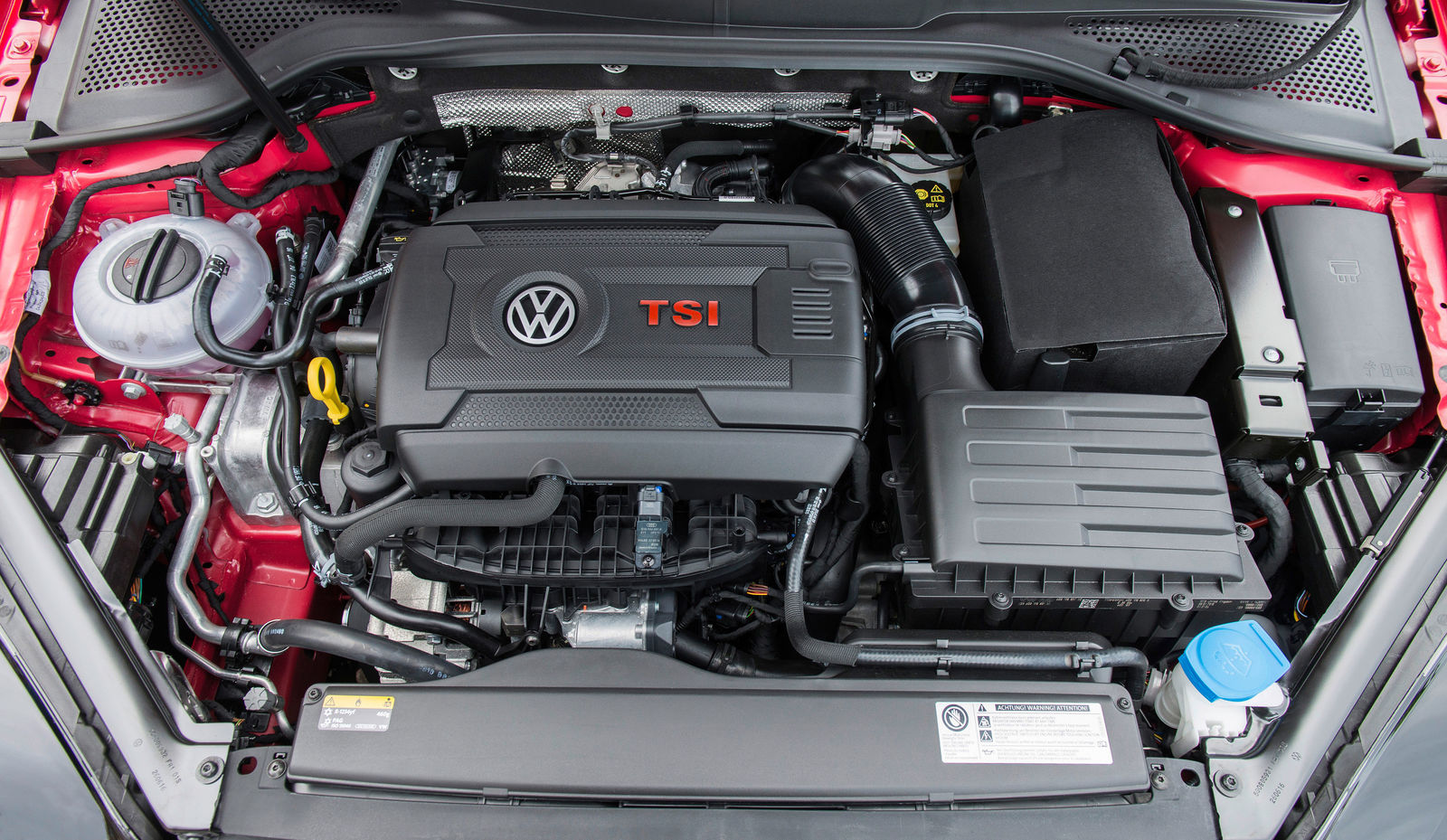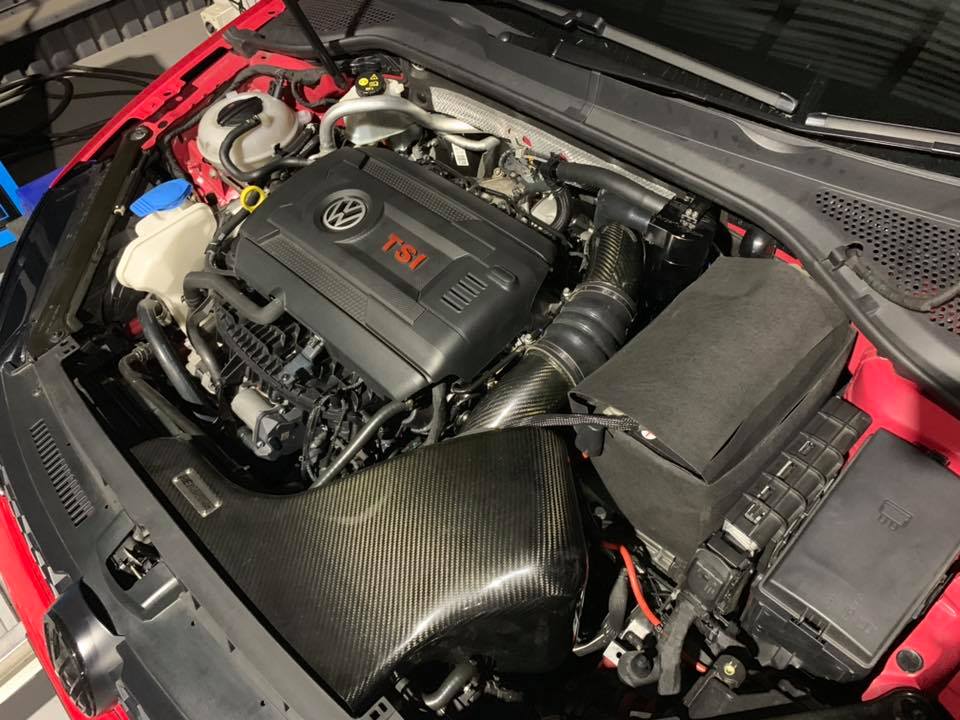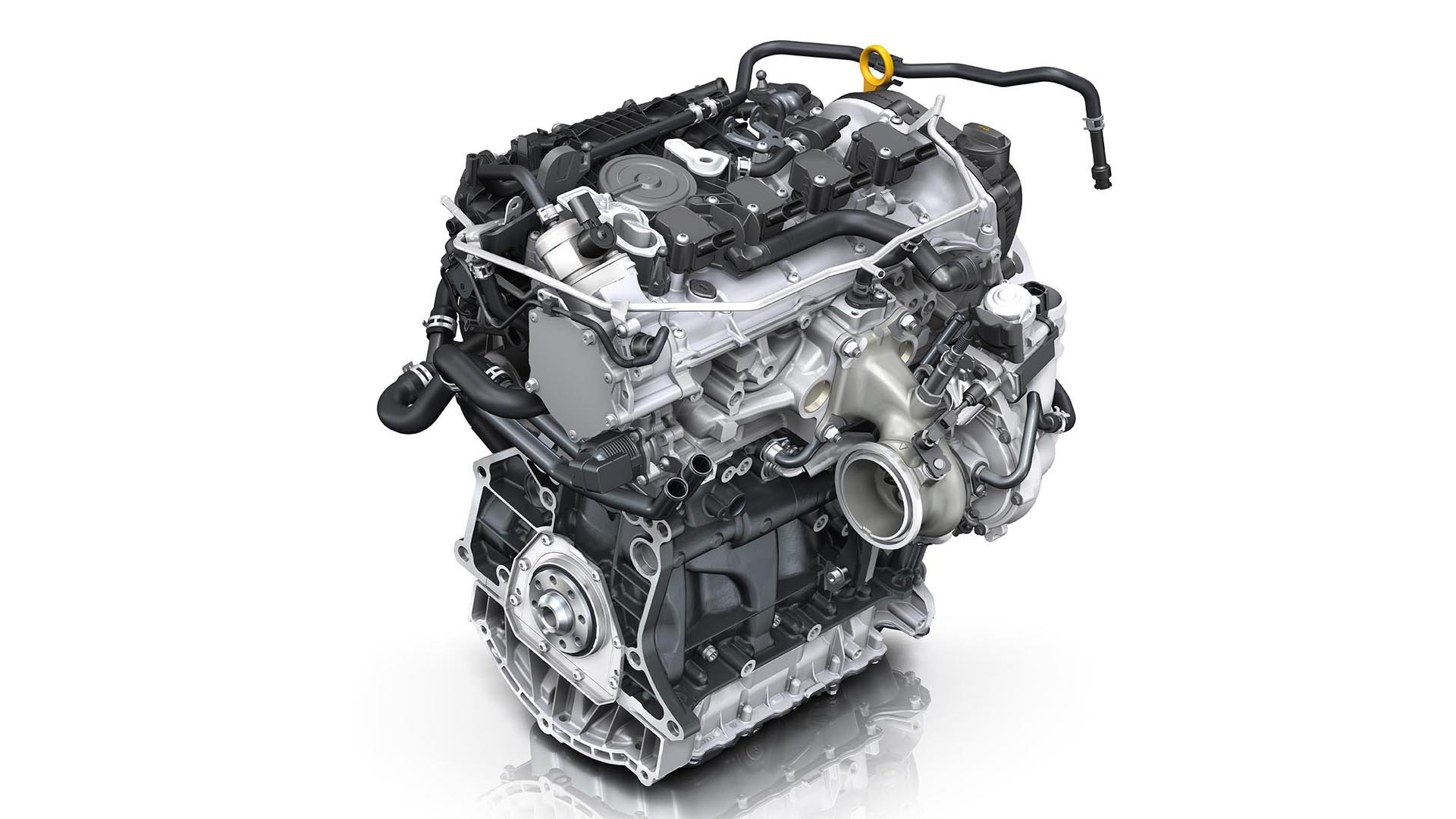Your Guide to the Golf 7 GTI Engine: Dependability and Upgrades
The Golf 7 GTI, outfitted with its 2.0-liter turbocharged inline-four engine, represents a balance of performance and integrity that charms to enthusiasts and daily vehicle drivers alike. Comprehending the aspects that add to its dependability, together with prospective problems and their options, is crucial for optimizing the driving experience. Discovering various efficiency upgrades can substantially boost both power and performance. Nonetheless, the inquiry continues to be: what certain upgrades can transform your GTI into a genuinely phenomenal lorry while guaranteeing its long life?
Introduction of the Golf 7 GTI Engine
The heart of the Golf 7 GTI is its 2.0-liter TSI engine, a turbocharged four-cylinder that provides an excellent mix of power and effectiveness. This engine produces a durable 220 horse power and 258 lb-ft of torque, enabling the automobile to accelerate from 0 to 60 miles per hour in just 5.6 seconds, showcasing its flashy character. The turbocharged layout not just boosts performance but additionally enhances gas effectiveness, making it a useful choice for daily driving.
Integrating innovative technology, the engine features straight fuel shot, which boosts burning performance and lowers exhausts. Additionally, the Golf 7 GTI is outfitted with either a six-speed handbook or a six-speed DSG dual-clutch transmission, supplying drivers with the versatility to choose their liked driving design. The car's front-wheel-drive format, combined with a well-tuned suspension, makes sure agile handling and a receptive driving experience.
Engine Reliability Elements
Integrity is an important facet of any performance-oriented automobile, and the Golf 7 GTI's engine is no exemption. Several aspects add to the overall dependability of this extremely pertained to powerplant, which is vital for both day-to-day driving and perky performance.
To Start With, the Golf 7 GTI is equipped with a robust 2.0-liter turbocharged inline-four engine, known for its efficient design and solid engineering. This engine features a built steel crankshaft and aluminum engine block, which give superior strength and resilience while minimizing weight.
Second of all, routine maintenance plays an important function in improving engine dependability. Adhering to the producer's suggested service periods, making use of high-grade lubricating substances, and replacing vital elements such as stimulate plugs and filters can significantly extend engine life.
In addition, the top quality of gas utilized can additionally influence integrity. Premium fuel is advised to make certain ideal performance and minimize the threat of knocking or ignition.
Last but not least, the automobile's electronic monitoring system constantly keeps an eye on engine parameters, permitting for real-time modifications to optimize performance and efficiency while guarding against potential concerns. Collectively, these variables highlight the Golf 7 GTI engine's reputation for integrity amongst enthusiasts and day-to-day chauffeurs alike.
Usual Problems and Solutions
The Golf 7 GTI, while commemorated for its performance, is not without its challenges. Among one of the most often reported concerns are engine oil consumption and turbocharger failings, which can considerably influence car integrity. Understanding these usual troubles and their options is important for keeping optimal engine performance.

Engine Oil Usage
While numerous fanatics value the performance of the Golf 7 GTI, engine oil usage can emerge as a remarkable issue. Proprietors may see that their cars call for even more regular oil top-ups than anticipated, frequently connected to various variables fundamental in the engine's layout and operation.
One typical concern is the engine's straight gas injection system, which can cause increased oil usage due to the combustion procedure. Additionally, the use of high-performance driving behaviors can aggravate oil burn-off, particularly under aggressive throttle problems. Drivers might likewise experience oil leakages from seals and gaskets, which can add to decreased oil degrees.
Routine oil adjustments making use of high-grade artificial oil can assist preserve optimal engine performance and durability. If too much usage persists, it may be suggested to get in touch with a specialist specialist to evaluate the engine for potential interior troubles, such as used piston rings or valve seals.
Turbocharger Failures
Turbocharger failings can substantially impact the efficiency of the Golf 7 GTI, leading to reduced power and efficiency. Oil leakages often stem from used seals or harmed gaskets, which can lead to oil contamination and subsequent engine damage.
One more common problem is wastegate failing, which can lead to overboost or underboost problems. This not only impacts the vehicle's efficiency yet can also bring about major engine damages if left unattended. Updating to a much more robust wastegate can enhance dependability and efficiency.
Excessive shaft play suggests wear in the turbocharger's bearings, which can cause a complete turbo failure. Checking increase stress and paying attention for unusual noises can assist identify this problem early.
To stop turbocharger failings, normal maintenance, including oil adjustments and air filter replacements, is important. In addition, buying top quality aftermarket elements may supply better integrity and efficiency, ultimately improving the driving experience of the Golf 7 GTI.
Efficiency Upgrades to Take Into Consideration
What efficiency upgrades can truly elevate the driving experience of a Golf 7 GTI? To unleash the full potential of this renowned hot hatch, several targeted adjustments can improve power, managing, and total driving satisfaction.
Among one of the most efficient upgrades is a high-performance turbocharger. Changing the stock system with an aftermarket option can considerably enhance horsepower and torque, providing a much more exciting velocity experience. Enhancing this upgrade with an efficiency intercooler aids preserve ideal temperatures, ensuring consistent power delivery.
Following, take into consideration updating the exhaust system. A less restrictive exhaust not just boosts engine effectiveness but also generates a much more hostile noise that enhances the car's flashy personality. Matching this with a remapped ECU will maximize fuel delivery and ignition timing, more improving performance.
Suspension upgrades, such as adjustable coilovers, can boost managing by lowering the lorry's center of mass and decreasing body roll. In addition, a collection of high-performance tires will boost hold, permitting for sharper cornering and boosted general stability.
With each other, these upgrades can transform the Golf 7 GTI right into a more awesome and dynamic driving equipment, making every journey a remarkable experience. golf 7 gti engine.
Recommended Upkeep Practices
Preserving the Golf 7 GTI engine calls for focus to vital methods that guarantee optimal performance additional info and longevity. Normal oil changes are essential for engine health and wellness, while prompt timing belt replacement is essential to avoid possible failures. Carrying out these upkeep methods will aid keep your automobile running efficiently and efficiently.
Routine Oil Adjustments
Regular oil adjustments are necessary for the optimal efficiency and longevity of the Golf 7 GTI's engine. Maintaining a constant oil adjustment timetable guarantees that the engine operates efficiently and successfully. The recommended interval for oil modifications is normally every 5,000 to 10,000 kilometers, depending on driving conditions and the sort of oil utilized.
Utilizing high-grade synthetic oil is crucial as it gives premium lubrication and thermal stability compared to traditional oils. This is particularly crucial for the Golf 7 GTI, which includes a turbocharged engine that creates greater operating temperature levels. Routine oil modifications assist to eliminate pollutants and sludge accumulation, which can jeopardize engine efficiency and cause early wear.
Additionally, fresh oil improves fuel efficiency and reduces hazardous emissions, contributing to a cleaner environment. Throughout the oil adjustment procedure, it is likewise a good idea to replace the oil filter to guarantee optimal filtering and stop any type of debris from entering the engine. Sticking to these techniques not only helps maintain the engine's honesty yet likewise preserves the value of the car, making regular oil transforms an essential element of responsible GTI possession.
Timing Belt Substitute
The timing belt is an important element of the Golf 7 GTI's engine, in charge of integrating the rotation of the crankshaft and camshaft. This synchronization is crucial for optimal engine efficiency and effectiveness. If the timing belt fails, it can lead to tragic engine damages, go to my blog making timely substitute important.

When planning a timing belt substitute, it is a good idea to also change the water pump and tensioner. These elements work in combination with the timing belt and frequently experience comparable wear, ensuring optimum performance and long life. Using OEM parts is suggested for their reliability and compatibility with the Golf 7 GTI's engine.
Specialist installation is very encouraged, as inappropriate setup can bring about serious engine malfunctions. Normal maintenance of the timing belt not just protects the stability of the engine but likewise boosts the general driving experience of the Golf 7 GTI. golf 7 gti engine. Prioritizing this job visit their website helps preserve vehicle dependability and efficiency with time
Aftermarket Parts and Alterations
Numerous lovers transform to aftermarket alterations and parts to improve the efficiency and visual appeals of the Golf 7 GTI. These upgrades can dramatically boost the car's responsiveness, managing, and total driving experience. Popular modifications include high-performance air consumptions, exhaust systems, and intercoolers, which can raise horsepower and torque by enhancing air consumption and exhaust circulation.
Suspension upgrades are additionally prevalent, with choices varying from lowering springs to completely flexible coilover packages that enhance trip high quality and cornering ability. Updated brakes, consisting of efficiency pads and blades, can provide better quiting power, ensuring safety and control during spirited driving.
Aesthetic modifications, such as aftermarket wheels, body sets, and custom-made illumination, enable proprietors to individualize their lorries while maintaining a stylish appearance. Engine adjusting, whether with ECU remapping or standalone engine administration systems, can open extra performance capacity, making the GTI even much more electrifying to drive.
While aftermarket modifications can generate substantial advantages, it's important to pick reputable brand names and take into consideration the possible influence on guarantee and dependability. Proper installment and adjusting are important to make sure the durability of the vehicle while enjoying the improvements.
Enhancing Gas Effectiveness
Improving fuel performance in the Golf 7 GTI can cause considerable cost financial savings and a reduced environmental influence. Accomplishing better gas economic climate requires a mix of driving routines, maintenance techniques, and calculated adjustments.
One reliable technique is adopting a smooth driving design, staying clear of rapid acceleration and heavy braking, which can substantially reduce gas usage. Preserving ideal tire stress is also critical; under-inflated tires can enhance moving resistance, bring about decreased effectiveness. Routine maintenance, consisting of engine tuning and air filter replacements, guarantees that the engine runs at peak efficiency, further enhancing fuel economic climate.
For those looking for upgrades, take into consideration an efficiency tune that concentrates on efficiency instead than large power. Eco-mode settings, if readily available, can adjust throttle action and shift points to maximize fuel financial savings. Additionally, lightweight aftermarket wheels can lower weight and improve effectiveness without endangering performance.
Finally, employing wind resistant enhancements, such as a front splitter or back looter, can decrease drag at greater rates, adding to better fuel economic climate. By applying these techniques and adjustments, Golf 7 GTI proprietors can enjoy enhanced fuel effectiveness while preserving the lorry's perky driving characteristics.
Conclusion
Finally, the Golf 7 GTI engine exemplifies a mix of efficiency and integrity, driven by a well-engineered 2.0-liter turbocharged inline-four. Awareness of common concerns, such as oil intake and turbocharger failures, alongside adherence to recommended maintenance practices, is important for durability. Moreover, different performance upgrades and aftermarket adjustments can improve driving experience while keeping dependability. Inevitably, mindful focus to both upkeep and enhancement techniques guarantees the Golf 7 GTI remains a competitive option in the automobile market.
The Golf 7 GTI, outfitted with its 2.0-liter turbocharged inline-four engine, stands for a balance of efficiency and reliability that appeals to fanatics and daily chauffeurs alike. Regular oil adjustments utilizing top quality artificial oil can aid preserve optimum engine efficiency and longevity.Regular oil changes are important for the optimal efficiency and longevity of the Golf 7 GTI's engine. Normal servicing, including engine adjusting and air filter replacements, makes certain that the engine operates at peak efficiency, even more boosting gas economic situation.
